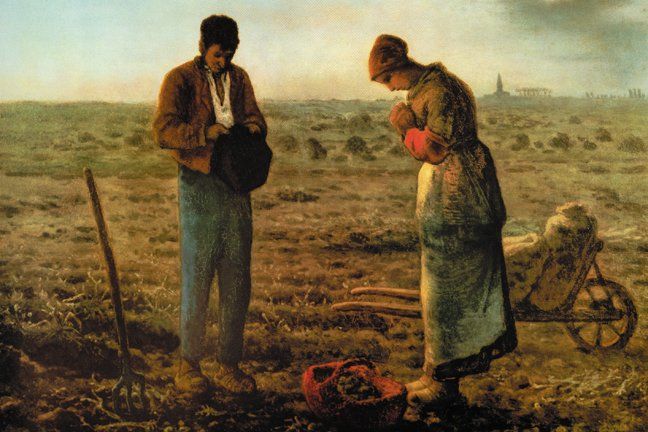Accustom yourself to praying the Angelus
August 19, 2020 | Miles Christi

When John Paul II visited the Italian city of Arezzo, the ‘birthplace’ of the Angelus, he took advantage of the hour of midday to tell us: “This midday pause for a moment of Marian
prayer is always so inspirational. It is so in a special way today, because we are in the place where, according to tradition, the custom of reciting the Angelus Domini began. It is told how, precisely here in Arezzo, Blessed Sinigardi, one of the early disciples of the Poverello of Assisi, introduced the pious practice of frequently reciting the antiphon ‘Angelus locutus est Mariæ: The Angel of the Lord declared unto Mary’. This custom spread quickly throughout the whole Franciscan order, thus originating that wonderful condensation of prayer and Christian doctrine, the Angelus.
“In rapid strokes the beautiful antiphon leads us back to that peak moment in the history of the world when the Word of God became flesh in the womb of the Virgin. Thus God’s revelation to mankind achieved its climax; it also reached its crowning moment in God’s saving self-gift to humanity. All this was accomplished through Mary’s ‘yes’” (John Paul II, May 23, 1993).
The Church gives special graces to the recitation of the Angelus. The Enchiridion of Indulgences says that in relation to the Angelus and to the Regina Cæli, “A partial indulgence is granted to the faithful, who devoutly recite the above prayers according to the formula indicated for the time of the year” [that is, the Angelus during the year, outside of the Easter Season; the Regina Cæli from Easter to Pentecost]. And the text of the Enchiridion concludes: “It is a praiseworthy practice to recite these prayers in the early morning, at noon, and in the evening”. Let us accustom ourselves to greet our Lady daily with this prayer that pleases her so much!
